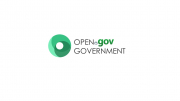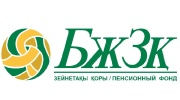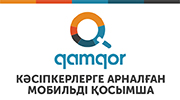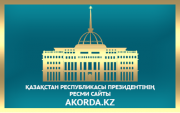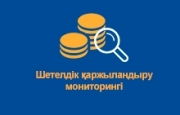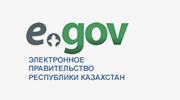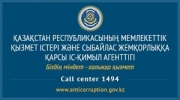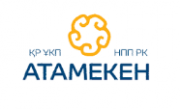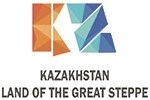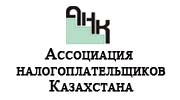
From January 1, 2021, Kazakhstan has introduced a phased universal declaration system.
The main objectives of the universal declaration are:
- Ensuring fair taxation and improving social policy.
- Creating an effective mechanism for controlling the income of individuals.
- Reducing the level of corruption and the shadow economy.
Thus, from January 1, 2021, the «initial» declaration was submitted by civil servants and persons equated to them, as well as their spouses - 580 thousand individuals.
In the second phase, in 2023, employees of state institutions and the quasi-public sector, as well as their spouses - 2.1 million people, submitted their declarations.
In the third phase, starting from January 1, 2024, declarations will be submitted by directors and founders (participants) of legal entities, individual entrepreneurs, and their spouses. The plan is to include 3.9 million individuals.
In the fourth phase, starting from January 1, 2025 - other categories of citizens will submit their declarations (for example, employees of private structures, pensioners, housewives, students, and others). It is planned to cover more than 6.4 million individuals.
In total, about 13 million people are expected to enter the universal declaration system.
Who is required to submit a declaration of assets and liabilities in 2024 as part of the third stage?
From January 1, 2024, directors and founders (participants) of legal entities, individual entrepreneurs, and their spouses are required to submit a declaration.
This requirement also applies to inactive and those who have suspended their activities.
Since, according to the norms of the Civil Code, branches and representative offices are not legal entities, the leaders of branches and representative offices are not obligated to submit a declaration in 2024 (paragraph 3 of article 43 of the Civil Code).
Also, in 2024, individuals engaged in private practice are not required to submit a declaration of assets and liabilities.
What information must be included in the declaration?
The universal declaration system involves all citizens providing a declaration of assets and liabilities, which reflects all foreign assets, movable and immovable property of the individual, such as:
- Real estate and transport abroad.
- Money in a foreign bank exceeding 3.5 million KZT (1,000 MCI).
- Shares in a foreign company.
- Securities, digital assets (bitcoins, etc.).
- Shared-equity construction agreements (share in a residential building).
- Investment gold (gold bars).
- Intellectual property and copyright objects.
- Cash within the limit of 34.5 million KZT (10,000 MCI).
- Notarially certified loan agreements with other individuals.
- Other property (ad lib), valued over 3.5 million KZT (cultural values, jewelry, pedigree animals, etc.) – the valuation must be done before the declaration submission deadline (no later than September 15, 2024) as at December 31, 2023.
Subsequently, a declaration of income and property (form 270.00) must be submitted annually, reflecting the income received during the calendar year, information about the acquisition or disposal of property both in Kazakhstan and abroad, as well as sources of funds used for their acquisition.
Thus, the declaration of income and property reflects:
- Incomes (from renting out, selling real estate, transportation, securities, foreign incomes, etc.).
- Tax deductions (expenses for medical services, education, mortgage payments, deductions for large families).
- Acquisition/disposal of property, including property received as a gift (real estate, transport, securities, digital assets, etc.).
- Sources of acquisition of expensive property.
- Securities, digital assets (bitcoins, etc.).
- Shared-equity construction agreements (share in a residential building)Ц.
- Investment gold (gold bars).
- Notarially certified loan agreements of individuals.
- Share in a foreign company.
- Real estate and transport abroad.
- Money in a foreign bank exceeding 7,300 US dollars (1,000 MCI).
Methods and deadlines for submitting the declaration?
The declaration must be submitted by September 15, 2024, at the place of residence. The declaration can be submitted through the web portals: «Taxpayer's Cabinet», «eGov», mobile applications «e-salyq Azamat», Halyk, Bank Centercredit. Citizens also have the right to submit the declaration on paper by mail or in person.
How to prepare for filing the declaration?
It is necessary to declare assets located abroad and in Kazakhstan as accurately as possible. In the future, the value of the assets will be considered when determining taxable income.
Therefore, before filling out the declaration, we recommend to take next steps:
- Prepare the corresponding supporting documents;
- Place funds (over 34.5 million KZT) in bank accounts before December 31, 2023;
- Notarially certify debts and claims existing on December 31, 2023, before the date of submission of the initial declaration;
- Conduct an appraisal of property, the value of which on December 31, 2023, is over 3.5 million tenge, before submitting the declaration;
- Check the presence of assets and liabilities in Kazakhstan on the following websites:
- For securities: https://portal.kacd.kz;
- For shared participation contracts in housing construction: https://homeportal.kz; https://www.gov.kz/services/3910?lang=ru;
- For intellectual property, copyright objects: https://gosreestr.kazpatent.kz;
- For property transferred to trust management: https://egov.kz/cms/ru/services/pass077_mu;
For the presence of debtor/creditor debt (loan agreement), it is necessary to send a request to the Republican Chamber of Notaries through the Doculite system.
Declaration of an Individual's Debt
One of the conditions for filling out the «initial» declaration of assets and liabilities is the reflection of debts and claims existing on December 31, 2023.
This means that citizens must reflect in the declaration their debts to other individuals or legal entities. Debts that are to be returned to this individual by others are also reflected.
According to the Tax Code, loan agreements must be notarially certified (part 2 of article 631 of the Tax Code).
Notarial certification of contracts will ensure an accurate reflection of the size of the debt and obligations of the individual.
The procedure for certifying contracts is regulated by Chapter 8 of the Law of the Republic of Kazakhstan «On Notaries», and the deadlines for notarial acts are determined by Article 40 (on the day of submission of all necessary documents and payment of the state duty).
Thus, contracts and other documents must be notarially certified before submitting the initial declaration (submission deadline is September 15, 2024). The Republican Chamber of Notaries has confirmed the right of individuals to certify the specified contracts (concluded before December 31, 2023) in the period until September 15, 2024.
Please note that debts and obligations can only be reflected in the initial declaration; additions will not be accepted (subparagraph 7 of paragraph 5 of article 211 of the Tax Code).
Bank loan agreements are not to be reflected in the declaration.
However, other contracts concluded with legal entities (including microfinance organizations) must be reflected in the declaration.
For all questions related to the procedure for certifying loan agreements, it is necessary to contact regional chambers of notaries for consultation (addresses of notary chambers are posted on the website www.notariat.kz).
Cash Declaration
Universal declaration is intended to ensure fair taxation of citizens based on their income size. Identifying individuals evading tax payments will help reduce the level of the shadow economy.
One of the effective methods of reducing shadow turnovers is the transition to non-cash payments, which have become an integral part of the lives of our citizens.
The share of non-cash payments for the first 9 months in Kazakhstan has increased to 86% (last year - 82%), according to the Association of Financiers of Kazakhstan.
In addition to adults, children from the age of 6 actively use non-cash payments, with 41.4% of parents having arranged cards for their children (data is taken from Kursiv Research, the Center for Sociological Research).
The safety of citizens' bank deposits is ensured by the state deposit guarantee system, in which 19 banks participate. The return of deposits up to 20 million KZT is guaranteed by the state.
Placing money in deposits not only ensures their safety but also protects against inflation.
In this regard, the number of individual deposits in banks increased from 16.9 million to 19.8 million, with an annual growth of 14.3%, and the total volume of deposits amounted to 18.6 trillion KZT (data from the Kazakhstan Deposit Insurance Fund).
Considering the insignificant volume of cash in the country's circulation, each citizen can declare cash up to 34.5 million tenge (10,000 MCI) during declaration. The presence of other funds is confirmed by second-tier banks.
The Tax Code requires banks to provide tax authorities with information about taxpayers' bank accounts (Article 26 of the Tax Code).
This requirement does not contradict the norms of the Constitution, as restrictions on this right are allowed in cases and in the manner directly established by law (paragraph 2 of Article 18 of the Constitution).
In this regard, the norms of the Law «On Banks and Banking Activities» (Article 50) and the Tax Code (Article 30) provide for the disclosure of bank secrecy for tax purposes.
Please note that it is necessary to declare assets located abroad and in Kazakhstan as accurately as possible. In the future, the value of assets will be considered when determining taxable income.
Declaration of Other Property and Gifts
Citizens may optionally include in their assets and liabilities declaration any valuable property worth more than 3.5 million KZT (1,000 MCI) per item.
Such property includes any expensive property located both in the Republic of Kazakhstan and abroad, for example, cultural values, jewelry, pedigree animals, and other valuable property, as well as objects of unfinished construction.
This property is declared if there is an appraisal value as at December 31, 2023. The appraisal must be done before the submission of the declaration (no later than September 15, 2024).
Valuable gifts are declared if they are received in the form of:
- Real estate and transportation, registered abroad, shares in a foreign company. However, apartments, transport, shares in the charter capital of a legal entity registered in Kazakhstan do not need to be reflected.
- Cash within the limit of 34.5 million KZT (10,000 MCI).
- Shares in housing construction, securities, digital assets, investment gold.
- Other property - is declared optionally if the value of such a gift per unit exceeds 3.5 million KZT (1,000 MCI). Such an assessment must be conducted by an independent appraiser as at December 31, 2023.
Declaration of Animals and Birds
In the declaration of assets and liabilities, citizens may optionally declare animals and birds of expensive breeds, the value of which exceeds 3.5 million KZT (1,000 MCI) per unit. For example, a pedigree racehorse, exotic animal, or bird.
Animals and birds used for breeding or personal needs do not need to be declared. Information about agricultural and domestic animals is obtained by the revenue authorities from authorized bodies.
How do tax authorities learn about incomes from foreign sources?
Since 2021, the Ministry of Finance has been receiving information about the incomes of Kazakhstani citizens deposited in foreign banks. These details are provided in accordance with the Multilateral Competent Authority Agreement on Automatic Exchange of Financial Account Information (CRS) under the Convention on Mutual Administrative Assistance in Tax Matters (Strasbourg, January 25, 1988).
Annually, information is received from 80 countries, with the main countries being the UAE, the United Kingdom, Turkey, France, and others.
The incoming information is used exclusively for tax administration purposes to determine tax obligations under individual income tax.
Declaration Adjustment
Citizens have the right to correct any errors or inaccuracies themselves by submitting an additional declaration within the statute of limitations provided by the Tax Code.
How is tax control of individuals' income conducted?
First, an automatic desk audit is conducted – monitoring the expenditures of individuals as follows:
- Checking for the presence/absence of a declaration.
- Identifying the fact of non-disclosure of income and property in the declaration and underreporting of income.
- Then, a tax audit is conducted concerning citizens who have not rectified the violations identified in the desk audit.
What guarantees are there for ensuring information security and preventing data leaks?
The information systems of the Revenue Committee operate in a closed loop, without internet access. This ensures the safety of all information received from taxpayers.
The State Technical Service conducts quarterly monitoring to ensure the information security of the Revenue Committee's systems.
In addition, access to the declarations is limited to a small group of employees who bear personal responsibility, including administrative and criminal liability.
Administrative Liability of Individuals is envisaged in the following cases:
- For failing to submit a declaration for the first time, a warning is issued; for a repeated violation within a year, a fine of 51,750 tenge (15 MCI) is imposed.
- For submitting incomplete or false information in the declaration for the first time – a warning; for a repeated violation within a year – a fine of 10,350 tenge (3 MCI) (Article 272 of the Administrative Offences Code).
- For hiding taxable objects for the first time within a year – a fine of 200% of the amount of unpaid taxes; for a repeated violation – a fine of 300% (Article 275 of the Administrative Offences Code).
What will happen if an individual does not want to submit a declaration and is willing to pay an administrative fine every year?
From 2025, an individual's failure to submit a declaration of assets and liabilities, income, and property, will be considered as confirmation of the absence of:
- Incomes subject to taxation independently by an individual.
- The fact of acquisition, alienation, or receipt of property as a gift (Article 633 of the Tax Code).
In case such an individual acquires property, its value will be recognized as income and taxed (Article 72 of the Tax Code).
At the same time, hiding taxable objects is subject to a fine of 200% of the unpaid tax amount; for a repeated violation, the fine is 300%.











